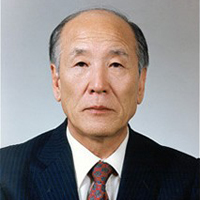Sang Soo Lee Award
Get Involved
Sang Soo Lee Award
The award was established in 2013, with the Optical Society of Korea (OSK), to honor Sang Soo Lee's contributions to optics.
Society Connection
Sang Soo Lee was a Fellow, volunteer and recipient of the Esther Hoffman Beller Medal for laying the foundation for optical science and engineering in Korea.
Key Funders
Optical Society of Korea (OSK), Sang Soo Lee Family
About Sang Soo Lee
 Lee, known as the "Father of Optics" in Korea, was the first scientist with a PhD degree in optics in his country, and he nearly single-handedly laid the foundation for optical science and engineering in Korea. During a career spanning more than four decades, he was active as an educator, researcher and author. He played a central role in establishing the Optical Society of Korea (OSK) in 1989 and served as its first president, and he also served as the first president of Korea Advanced Institute of Science and Technology (KAIST) (1971-72). He researched various topics including wave optics, ray optics, quantum optics, and holography.
Lee, known as the "Father of Optics" in Korea, was the first scientist with a PhD degree in optics in his country, and he nearly single-handedly laid the foundation for optical science and engineering in Korea. During a career spanning more than four decades, he was active as an educator, researcher and author. He played a central role in establishing the Optical Society of Korea (OSK) in 1989 and served as its first president, and he also served as the first president of Korea Advanced Institute of Science and Technology (KAIST) (1971-72). He researched various topics including wave optics, ray optics, quantum optics, and holography.
He received a BS in Physics from Seoul National University in Korea (1949) and a PhD from Imperial College of Science and Technology, University of London, UK (1959). From 1960-70, he worked at the Korea Atomic Energy Research Institute (KAERI), first as Head of the Physics Research Division (1960-67), and then as Director (1967-70). After a year as Director General of the Office of Korea Atomic Energy (1970-71), Dr. Lee went to KAIST, which was the newly established graduate school of science and technology, fully funded by the Korean government. He was named Professor in the Department of Physics in 1971 and remained in that position until 1989. From 1989-91, he again served a term as President of KAIST.
During his teaching career, Lee mentored 50 doctoral and more than 100 masters' degree candidates. Many of his former students have become leaders in academia, government-funded research institutes, and industry. He published more than 250 technical papers and authored five textbooks, including Wave Optics, Ray Optics, Quantum Optics, and Laser Speckles and Holography.
Lee was an active member in the scientific community. In addition to his pioneering scholastic achievements at OSK and KAIST, he served as the Vice President of the Korean Federation of Science and Technology Societies (1995-97), the Korean Academy of Science and Technology (1992-95), and the International Commission for Optics (ICO) (1993-1999). He was a Council Member of the Third World Academy of Sciences, and a Council Member of UN University, serving as an ambassador for the optics community.
He was elected a Fellow of the society in 1975, and was also a Fellow of the International Society for Optical Engineering (SPIE), and the Korean Physical Society. He was the recipient of many awards and honors, including the National Order of Civil Merit that is the Presidential Medal of Honor from the Republic of Korea (2000), the Songgok Academic Achievement Prize, the Presidential Award for Science, and the Medal of Honor for Distinguished Scientific Achievement (Republic of Korea). In 2006, he was awarded the Esther Hoffman Beller Medal. He passed away on 7 May 2010, in Korea at age 84.
